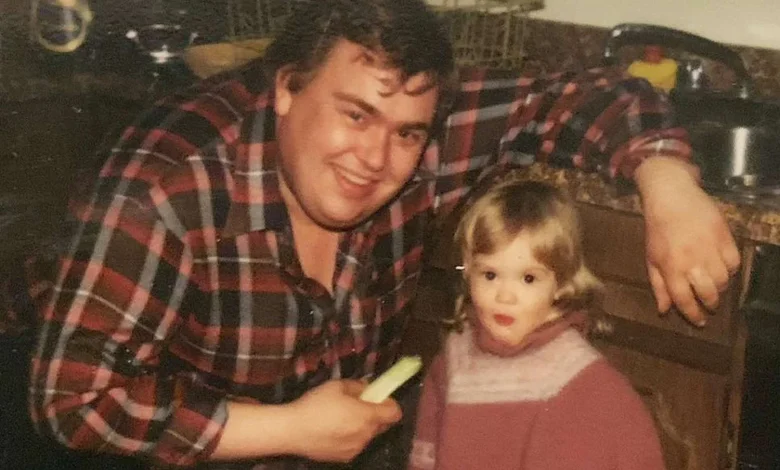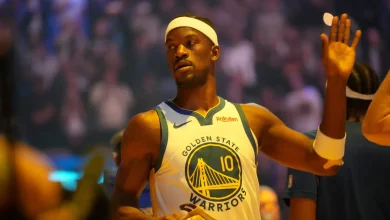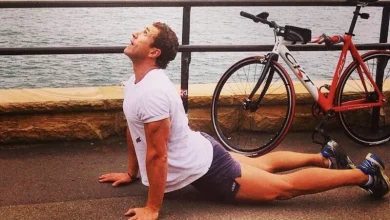Interview: Comedian John Candy’s daughter on new documentary about her father’s legacy

Everyone has their favorite John Candy moment. Whether it be “Spaceballs,” “Stripes” or “Uncle Buck,” Candy stole the screen with his charisma, humor and heart.
As a kid, I remember watching “Home Alone” (1990) for the first time and hysterically laughing at Candy’s character Gus Polinski describing how he left his son in a funeral parlor in a futile attempt to relate to Kate McCallister (Catherine O’Hara). Candy is only on screen for a few short moments, yet he still stands out against the backdrop of the film’s Christmas shenanigans.
But my favorite Candy role is Del Griffith in “Planes, Trains, and Automobiles” (1987). His performance is unparalleled; he not only delivers sidesplitting jokes but also incorporates vulnerability and softness in the role. Playing against Steve Martin’s uptight, peevish Neal Page, Candy embodies, as Martin says in a new documentary, “annoying better than anyone.” Yet you still can’t help but love Del by the end of the film.
The documentary “John Candy: I Like Me,” directed by Colin Hanks, shines a light on Candy’s upbringing, acting career and mental health struggles. Many important people from Candy’s life, including his wife and kids, Steve Martin, Eugene Levy, Catherine O’Hara, Mel Brooks and Tom Hanks, comment on Candy’s personality, work ethic and commitment to helping others. The documentary discusses each facet of Candy’s life from his work on “Second City TV” (also known as “SCTV”) and his acting for director John Hughes to his family life at home with his wife, Rose, and his two children, Jen and Chris. Sprinkled in are clips from Candy’s home videos and media interviews, which show him as the kind, lovable person audiences were familiar with.
The real Candy was the embodiment of Del and Gus, a blend of silly and serious. He was undoubtedly a powerful comedic actor, with expert timing and comic-sense. But what makes Candy stand out from other comedians was his ability to play characters whose vulnerability sticks with you long after you leave the movie theater.
Early in the documentary Rose explains that as a young child, Candy was thrust into the “father” role in his family when his dad died. Candy’s family never spoke about it, which caused unresolved trauma that haunted him into his adult life. However, it also led to Candy’s strong focus on “family man” roles. As Jennifer Candy, John’s daughter and one of the co-executive producers of the film, said in an interview with America: “Family was number one growing up….[H]e always tried to be there for everyone’s birthday…family was always very important.”
Many of Candy’s most popular and famous characters have a charm that makes the viewer feel like he’s your own father. “I think he kind of was recreating the relationship that he might not have had with his dad, or he wished he would have had with his dad,” Ms. Candy said.
And in the Candy household, things were not much different. “At home, he very much was the same person [as his roles],” Ms. Candy said—jokingly adding that the biggest difference between Candy’s on- and off-screen presence was that “he was a little bit more serious…. If we didn’t do our homework, if our mom asked and then we still didn’t do it, our dad had to come in.”
Yet Ms. Candy was still surprised by some of the insights revealed by the film: “I think, his resilience, and also his vulnerability. He was very vulnerable when he was doing interviews, and I don’t think I ever saw that side of him.”
Candy’s struggle to balance acting and his family is well documented. In an interview featured in the film, Candy is asked why he would turn down roles due to traveling. Candy simply responds, “Yeah, a lot of times I’ve had to do that…the kids are getting older and I wanna spend some time [with them]…. They grow up so quickly.” In other archival clips, Candy lights up while talking about his family time, especially that spent with his children. In another notable segment, Candy is pressed by an interviewer on why he seems much more calm and collected while at home with his family. Candy calmly responds, “Life is too short…. This is a real place, these are real people around me, I chose that life.” Moments like this one are showcased throughout the documentary.
Candy was raised Catholic and went to Neil McNeil Catholic High School, an all-boys school in Toronto. In the documentary, Rose describes herself as a “rebellious Catholic” but says Candy himself grew up saying “I’m Catholic”—implying humorously that Candy was pretty devout in the earlier parts of his life. Ms. Candy also revealed that even as Candy’s life changed and became more hectic, faith was still important: “When we came to California there was St. Martin of Tours, which was the local Catholic Church, and so we became part of that parish.”
The core values of the Catholic Church were key to both Candy’s upbringing and how he eventually raised his kids.
“There was always some connection for [my father] with the Catholic Church,” Ms. Candy said. “And I think that was [because] something about it was comforting for him [and reminded] him of his childhood.”
Dan Aykroyd, in a touching tribute at Candy’s funeral that opens the film, describes him by a list of monikers including “director,” “international film star” and “altar boy.” After reflecting on what title fit Candy most, Ms. Candy said “human” was the best way to describe her father.
Indeed, Candy’s humanity is perhaps what is highlighted most strongly in the documentary. He may seem, as Aykroyd describes, “grand” to those of us who only know him as an actor and performer, but Ms. Candy speaks of her dad much more intimately: “We would always have family conversations late at night, and kind of check in with each other,” she recalls. Candy’s humor was also present as he would play his characters like Dr. Tongue from “SCTV” around the house for the amusement of Ms. Candy and her brother.
I asked Ms. Candy which character her father was most like: “I always say ‘Summer Rental.’ That’s my dad. Who he was there in that movie.” The 1985 film stars Candy as the lovable Jack Chester, who goes on summer vacation with his family at the beach. Ms. Candy described her father’s character as “a hard-working family man but [who] still got frustrated when things got complicated in life—but still had a good time.”
Candy’s honest and uplifting nature is emphasized by his many collaborators from over the years. In the film, Tom Hanks mentions that Candy was both “inclusive” and “additive” in the way he performed, leading to many improvised moments on the set of “Splash” (1984). While in college at Harvard, comedian Conan O’Brien hosted Candy on campus. Upon telling him he wanted to “try” comedy, Candy got serious and whispered: “You don’t try it, you either do it or you don’t do it.” But the most telling quote about Candy is perhaps from Steve Martin: “He wanted to be smaller in the world.”
Ms. Candy says she has received “tons of positive messages” following the documentary’s release. Her favorite reactions have come from fans across multiple generations who say that they plan to show Candy’s films to their kids or grandkids.
“If you watch the documentary and learn one new thing about our dad, I feel like we’ve done our job,” she says. “Just passing his legacy on to next generations, I think, is key.”





